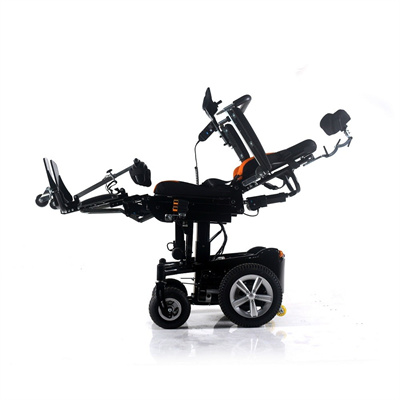Creating wheelchair-friendly workplaces is not just a matter of compliance with disability laws; it’s also about fostering an inclusive and diverse work environment where all employees, regardless of their mobility challenges, can thrive. Here are some key considerations and strategies for promoting inclusivity and ensuring wheelchair accessibility in the workplace:
- Accessible Facilities:
- Ensure that the physical workplace is accessible to wheelchair users. This includes providing ramps, elevators, and accessible restrooms.
- Designate accessible parking spaces close to the entrance and ensure they are kept clear for employees who need them.
- Accessible Workstations:
- Arrange workstations and office layouts to accommodate wheelchair users comfortably. Ensure there is adequate space for maneuvering, and that desks and work surfaces are at an appropriate height.
- Provide adjustable desks and chairs to accommodate various needs and preferences.
- Accessible Technology:
- Ensure that computer systems and software are compatible with assistive technologies used by employees with disabilities, including screen readers and voice recognition software.
- Provide accessible communication tools and ensure that all digital content, including emails and documents, is accessible to everyone.
- Accessible Meeting Spaces:
- Make meeting rooms and conference areas wheelchair-accessible. Ensure that tables and seating arrangements are inclusive and that there are no barriers to participation.
- Provide assistive listening devices for employees with hearing impairments.
- Accessible Restrooms and Amenities:
- Maintain accessible restrooms with appropriate grab bars and clear floor space. Consider gender-neutral or all-gender restrooms to be more inclusive.
- Ensure that amenities like water fountains and kitchen areas are accessible.
- Accessible Communication:
- Provide information in multiple formats, including printed materials, digital content, and in-person communication, to accommodate various needs.
- Use plain language and avoid jargon to ensure clarity in all communications.
- Training and Sensitivity:
- Train employees and managers in disability awareness and inclusion. Promote a culture of respect and sensitivity toward colleagues with disabilities.
- Encourage open communication so that employees feel comfortable discussing their needs and accommodations.
- Flexible Work Arrangements:
- Offer flexible work hours and telecommuting options, when feasible, to accommodate employees’ needs and reduce the challenges of commuting.
- Consider flexible leave policies to allow for medical appointments and treatments.
- Emergency Preparedness:
- Develop and communicate emergency evacuation plans that take into account the needs of wheelchair users and individuals with mobility challenges.
- Conduct regular drills to ensure that all employees are familiar with emergency procedures.
- Reasonable Accommodations:
- Be responsive to individual accommodation requests. Engage in an interactive process with employees to determine reasonable accommodations that meet their specific needs.
- Provide assistive devices or equipment, such as ergonomic office chairs or adjustable desks, as needed.
- Inclusive Policies:
- Review and revise workplace policies and procedures to ensure they are inclusive and do not discriminate against employees with disabilities.
- Encourage inclusive language in all official documents and communications.
- Employee Resource Groups (ERGs):
- Support the creation of ERGs or affinity groups for employees with disabilities to foster community, provide support, and advocate for inclusivity.
- Supplier and Vendor Diversity:
- Encourage supplier and vendor diversity by partnering with companies and service providers that are committed to accessibility and inclusivity.
Promoting wheelchair accessibility and inclusivity in the workplace not only benefits employees with disabilities but also enhances overall workplace diversity and productivity. It sends a positive message that the organization values and respects the contributions of all its employees, regardless of their abilities.




















